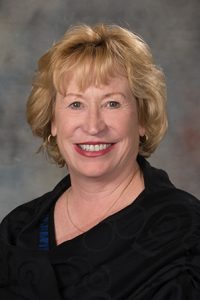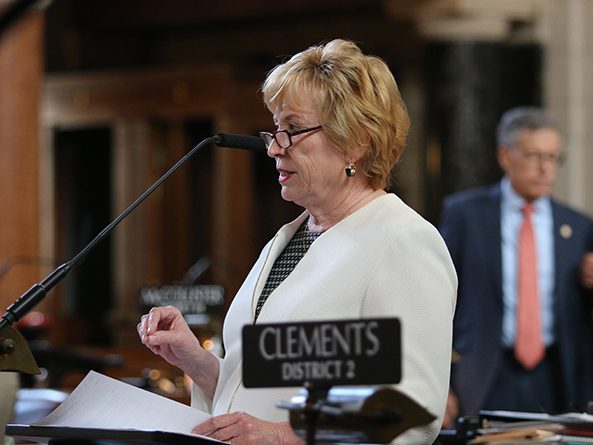Tax credit for private school scholarship donations stalls
A bill that would create an income tax credit for those who donate money to nonprofits that grant scholarships to students to attend a private elementary or secondary school stalled on general file May 13.
Under LB670, introduced by Elkhorn Sen. Lou Ann Linehan, individuals, passthrough entities, estates, trusts and corporations could receive a nonrefundable income tax credit equal to the total amount of their contributions or 50 percent of their income tax liability for the year, whichever is less.
The scholarships could be used to pay tuition and fees at a qualifying non-governmental, privately operated elementary or secondary school in Nebraska.
Linehan said similar programs in other states have saved money because they lower the number of students attending public schools. She said the proposal would not reduce funding for Nebraska’s public schools but would give more students from low-income families the opportunity to attend a school that best fits their needs.
Students who are Nebraska residents and whose household income does not exceed twice the eligible income for the federal reduced-price lunch program could qualify for the scholarships.
LB670 would limit the amount of tax credits available for calendar year 2020 to $10 million. After that, the annual limit would increase by 25 percent if the tax credit amounts in the prior calendar year exceeded 90 percent of that year’s cap.
A nonprofit could apply to the state Department of Revenue to become a certified scholarship granting organization under the bill.
Among other requirements, an organization would be required to provide the department sufficient information to show that it would not limit scholarships to only one qualified school.
An organization also would be required to show that it would give first priority to eligible students who received an education scholarship during the previous year and then to new applicants whose household income does not exceed 185 percent of the federal poverty level or who are in foster care or out-of-home care.
A pending Revenue Committee amendment would add two requirements for scholarship granting organizations. It would require an organization to limit the maximum scholarship awarded to any student to the cost of tuition and fees at the school the student attends.
It also would require an organization to limit average scholarship amounts to no more than 75 percent of the statewide average general fund operating expenditures per student.
Sen. Mike Groene of North Platte supported the bill, agreeing with Linehan that it would not affect funding for public schools. Groene said he opposed similar proposals in the past because of their cost but that he now sees the tax credits as a way to expand educational opportunity and improve Nebraska’s workforce.
“LB670 is workforce development, another opportunity … for young people to seek an education that fits who they are, who their families are, and we need to expand educational opportunities as wide and as far as we can,” he said.
Omaha Sen. Rick Kolowski opposed LB670, saying it attempts an “end run” around a constitutional prohibition against directing public dollars to private schools.
“We constantly debate how to fund public schools and how to administer education funding,” he said. “This bill would put even more pressure on funding for public schools and our constitutional duty to educate students.”
Sen. Kate Bolz of Lincoln expressed concern about the proposal’s impact on the state budget. If the amount of credits increased each year, as the bill would allow, the state would forgo approximately $93 million per year by 2030, she said.
“Foregone revenue is revenue we can’t use to pay the bills of the state,” Bolz said, “and this is foregone revenue through a tax credit mechanism.”
Fremont Sen. Lynne Walz also opposed the bill. By reducing state revenue, she said, it would divert state funding away from public schools at a time when the Legislature is trying to reduce Nebraska’s reliance on property taxes to fund them.
She said the projected cost of the credits by 2030 would be more than the state currently spends on aid to educational service units, high-ability learning programs, early childhood programs, school meal programs, adult education programs and several others combined.
After three hours of debate, the Legislature adjourned for the day before voting on the committee amendment or LB670. Per a practice implemented by Speaker Jim Scheer, the sponsor of a bill that is facing a potential filibuster must demonstrate sufficient support for a cloture motion before the measure will be scheduled for additional debate.


